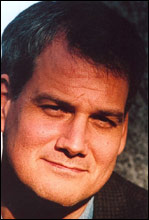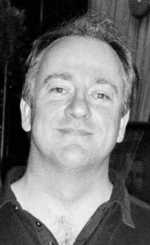BOOK REVIEW
Kerry Brown reviews
A Tragic Honesty: The Life and Works of Richard Yates
by Blake Bailey
Hardcover 680 pages (September 30, 2004) Methuen Publishing Ltd
ISBN 0413774325
This review is 1,700 words
or about 5 printed pages long
Caverns
Richard Yates’s life supports a number of prejudices about suffering being the price to pay to produce great work. Yates himself subscribed to the view of a ‘tragic intellectual’. He saw that delineated in the works of his literary hero, F Scott Fitzgerald. His own life was the source for the tragedies described in tight, economical, crystal clear prose in his greatest novels, Revolutionary Road, The Easter Parade, and in the superlative Collected Short Stories. A part of this tragedy was to suffer neglect in his own life. He died, largely forgotten, in 1991 at the age of 56 (an age, in view of his history of severe alcoholism and chain smoking, it was miraculous he reached). It has only been in the last two years that his reissued work has started to find a wider, appreciative audience.

Blake Bailey
Blake Bailey’s epic retelling of Yates’s biography serves as part of this process of rediscovering and reclaiming. It is a tale pervaded by manifestations of disfunctionality. Brought up by a strong minded independent mother, who was to spend most of his childhood and adolescence pursuing a career as a sculptress, her movements dictated by the various people she owed money to and was fleeing from, Yates was sent to an eccentric fee paying school courtesy of the alimony payments of his absent father, and then unleashed into the working world, an experience he was to draw on with such bitter-sweetness in
Revolutionary Road (the bitter much more prevalent than the sweet).
The real rhythms of Yates’s existence for the next four decades, described in this 600 page biography, were to be highly asymmetrical — periods of brief calm, followed by long disintegration, assisted (always) by alcohol, and ending in devastating periods of complete mental breakdown. The latter were accompanied by hospitalisation, medication, and (twice) marital break-ups. Yates’s condition was diagnosed as ‘bipolar’ — its symptoms manic activity, sometimes accompanied with delusions (one scene describes Yates’s being retrieved from a hotel claiming that the German army were in hot pursuit, shouting through the window of the taxi that took him away to take care of the bullets that were raining on their heads), and crushingly debilitating periods of manic depression. His first and second novels took five and eight years to produce respectively — periods extended by the fact that for large chunks of this time he was simply unable to function.
While Yates’s hyper-sensitivity might betray the sensibility of a poet, in fact his novels are unrelentingly clear about the hopeless predicaments of their entrapped characters.
Revolutionary Road has been described as
the novel of post-war suburban America, combining a vision of superficial respectability with the murkiest undercurrents of psychological conflict, breakdown and family implosion
. Easter Parade, as Blake Bailey points out, begins and ends with a declaration on the misery of ‘family’. These now read as even more subversive declarations in the era in which George W Bush’s government actively promotes the essential contribution of a traditional family unit to a stable, prosperous democracy. In fact, for Yates’s protagonists, the issue of character being destiny is a given. Their doom is in their beginning — in the neuroses and agonies they are handed in their childhoods. The one thing open to negotiation is the strategies by which they evade, handle, or succumb to these vulnerabilities. In the finest of his short stories, the narrative of this process is resolved either in self-delusion, or in self-implosion by the characters. His is a world where no one displays much mercy to themselves.
Yates’s story is, despite its terrible troughs, not a depressing one. While it does raise starkly the question of whether such fine novels can be seen to justify unrelenting misery and pain, on the whole it shows that at least for someone like Yates writing offered a sort of salvation and ordering purpose, which justifies it. Malevolent fate placed Yates’s moment of glory at the beginning of his career with the triumphant reception of
Revolutionary Road in 1961. By his death, thirty years later, he was largely forgotten. In those years, he had spent his time leading creative writing courses, a job he regarded with distaste, but which he performed, it seems, with fine conscientiousness, winning the loyalty and admiration of most of the students he had contact with. His was not the path of total solitude but perhaps the more painful option of periods when he was capable of making intimate, close relationships (witness his two marriages, and the children than resulted from them, all of whom displayed heroic and long-suffering loyalty to their damaged father) placed in stark contrast of periods (sometimes of a year or so) of complete withdrawal, violent conflict with those close to him, and capricious self-destruction. Most of this was accompanied by chronic alcoholism, that masked the overwhelming presence of mental instability beneath, and to those who did not know him better, served as its excuse.
Inspired by stories of other writers making the great trip to Paris to discover their artistic person, Yates’s managed one lengthy stay there and in London, in the late 1950s, funded by a writer’s bursary. The stay in London with his first wife was to lead to their separation, with him experiencing the peculiar distracted solitude that Kensington offered — he room shared with a man as advanced in alcoholism and as much in denial about this as himself. It was in London that the first of his short stories were to be slowly accepted by US magazines — they were judged unsuitable to the UK market by his agent. For the rest of his career Yates was very much US-based.
He did have periods of public activity, the most intriguing of which was his brief stint as a speech writer for Robert Kennedy, in the early 1960s. It is grimly comic that to do this job, which he got through the recommendation of William Styron, a writer who greatly admired him, he needed to be security cleared by the FBI. Their investigators didn’t take long to establish that one of the key members of the Attorney General’s self-appointed team was a manic depressive who had been institutionalised several times, and had a well-documented, widely-known history of alcoholism! To his credit , Kennedy maintained Yates’s position after a brief interview — but the writer himself was not likely to function for very long in the somewhat ‘bullshit’ full (his own words) atmosphere of the White House. Tired of the ‘phoney values’ of the Camelot Presidency, he resigned after a few months — but his speeches on civil rights legislation did get some public recognition. He also tried the more familiar route of being a screenwriter in Hollywood — another job brokered through Styron. But he was unsympathetic to the glitzy environment, the clash of egos, and the practicalities of the culture business he found there. His main incentive was simply to earn money, and the scripts he worked on were never to make it to the big screen, despite being judged technically excellent.
In terms of the writing process, of the business of putting words on the page, Bailey’s book contains exhaustive descriptions of the glacially slow progress Yates made on his work. When he was functioning, he managed 100 words a day. After the breakup of his second marriage and the worst of his breakdowns, in the mid-1970s, he came to exemplify what Bailey describes as the almost perfect image of a life lived purely for the act of writing and the products of that process. His houses were Spartan, his rooms almost all empty apart from a desk with neat piles of legal notepaper, a manual typewriter, and sharpened pencils. Around this island of neatness there were frequently piles of cockroaches and rubbish. The sole sustenance (Yates always ate outside) was a bottle of bourbon. In terms of what he did each day, he would usually surface from his hangover in mid morning, manage two hours of work, and then spend the rest of the day sinking back into inebriation. The sole manifestation of order was the tightly controlled prose that he produced.
As the chronicler of the aesthetics of quite desperation, Yates’s work has powerful resonance in an age of life-makeovers and impact presentation. He was never, despite the accessibility of his style, likely to be a popular author — his subject matter was the poetry of decline and failure, like Samuel Beckett without the philosophical pretence. But Yates’s portrayal of the terrible entrapments of his characters is compelling.
Revolutionary Road was initially judged too harsh, with its ending in a self-induced abortion. A similar complain was made consistently by the editors of the
‘New Yorker’ over almost two decades of rejecting his short stories on the grounds that they were ‘unrealistically bleak’. History has vindicated Yates.
Revolutionary Road is now seen as the most poetic depiction of the breakdown of the American dream, at a time when the dream was most widely subscribed to, and the US was riding a wave of Post-War prosperity and optimism. The title of the novel was to cause concern to the first publisher, who wanted a more catchy, flamboyant title. But in fact, as Yates argued,
Revolutionary Road was a truthful title, in as much as it showed where the path of hope and idealism began in the revolution of 1776 had in fact led.
In 2005, while some of the context and details of his stories has aged, their message and style remains contemporary. They do not dramatise, either in style or substance, the way that people live their lives, and construct fantasies to avoid the appalling emptiness that might be staring them in the face. Yates’s own life was almost a parable of the kind of caverns into which someone unable to avoid that honesty could fall. His writing is the greatest triumph of that life, as this powerful narrative proves.

Kerry Brown, London, March 2005. Photo by John Tranter
Kerry Brown graduated from Cambridge where he was a pupil of J.H. Prynne. He became an expert in Asia, living in China for seven years, and getting a Ph.D in Chinese on the relationship between language, power and politics. You can read more on his website, http://www.innermongolia.co.uk/
He then became a diplomat serving the UK government.
it is made available here without charge for personal use only, and it may not be
stored, displayed, published, reproduced, or used for any other purpose
This material is copyright © Kerry Brown and Jacket magazine 2005
The Internet address of this page is
http://jacketmagazine.com/28/brow-yate.html
